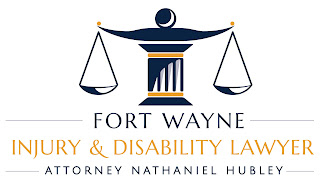Vocational Experts: who are they, what are their qualifications, and what role do they play in SSA disability hearings
Generally, a Vocational Expert ("VE") is an expert witness who knows about job availability in the current labor market as well as the skills that are needed to perform specific jobs. In the Social Security Administration ("SSA") disability setting, VEs are vocational professionals who provide impartial expert opinion evidence about a claimant’s vocational abilities that an ALJ considers when making a decision about disability.
As many Social Security Disability attorneys know, the bulk of VEs provide testimony in SSA disability hearings.
In this context, the United States Supreme Court noted that VEs are:
“[P]professionals under contract with the Social Security Administration to provide impartial testimony in agency proceedings. They must have expertise and current knowledge of working conditions and physical demands of various jobs; knowledge of the existence and numbers of those jobs in the national economy; and involvement in or knowledge of placing adult workers with disabilities into jobs. …
When offering testimony, the experts may invoke not only publicly available sources but also information obtained directly from employers and data otherwise developed from their own experience in job placement or career counseling.” Biestek v. Berryhill, 139 S. Ct. 1148, 1150 (2019).
What are the current SSA certification requirements for Vocational Experts?
Generally, the Office of Hearings Operations determines whether a person meets the qualifications to perform the functions of a VE. If qualified, a Blanket Purchase Agreement ("BPA") is issued. The regional office considers overall education and experience in determining whether a person requesting qualification as a VE has expertise and a current knowledge of:
Working conditions and physical demands of various occupations;
Transferability of skills;
Knowledge of the existence and numbers of jobs at all exertional levels in the national economy;
Involvement in or knowledge of placing adult workers, including those with disabilities, into jobs.
Are there new SSA certification requirements for Vocational Experts?
Yes. The SSA amended the Vocational Expert Consulting Services to include additional qualifications for serving as a VE.
All VEs must meet and maintain the following requirements starting March 31, 2025:
At least five years of direct experience providing vocational rehabilitation services to individuals with disabilities;
Current national certification as either a Certified Rehabilitation Counselor (CRC) by the Commission on Rehabilitation Counselor Certification (CRCC), or National certification as a Fellow or Diplomate by the American Board of Vocational Experts (ABVE), and
Meet the continuing educational requirements of their national certifications from either the CRCC or ABVE.
What role does a Vocational Expert play in SSA Disability Hearings?
First, it's important to know how a VE gets assigned to a SSA disability case. Before scheduling the hearing, the assigned administrative law judge (ALJ) will review a case to determine whether VE testimony is needed, using the instructions in Hearings, Appeals and Litigation Law (HALLEX) manual I-2-5-50. A designee may also perform this task and make a recommendation to the ALJ.
A VE provides testimony by either testifying at a hearing (see HALLEX I-2-6-74) or providing a written response to interrogatories (see HALLEX I-2-5-57).
Second, it's important to know what materials are reviewed by the VE prior to the disability hearing. Before the hearing, the ALJ (or designee) will provide the VE with copies of all evidence relating to the claimant's vocational history.
If additional vocational evidence is received at the hearing, the ALJ should provide it to the VE for review before the VE testifies.
Past work summary/history
Prior ALJ decisions
Previous VE work summaries or interrogatories
VE’s do not typically have access to the entire file.
Third, it's important to know what a VE does once assigned to a SSA disability case. The VE will review the provided evidence and prepare a past work summary. This summary should outline all work in the last 15 years. At a minimum, the summary should include the DOT descriptor code along with the SVP and exertional level per the DOT. The ALJ may use a VE before, during, or after the hearing. If a VE has had prior contact with the claimant, either professional or personal, they should recuse themselves from the case. A VE does not need to recuse themselves if prior contact was as a VE in a previous SSA hearing.
Fourth, it's important to know what a VE does at the SSA disability hearing. At the disability hearing, VEs will:
Summarize the claimants past work, focusing on the past 15 years.
Conduct a transferrable skills analysis, if needed.
Answer hypotheticals posed by the ALJ.
If permitted by the ALJ, respond to cross examination from the attorney, representative, or the claimant themselves.
Depending on the ALJ presiding over the case, the VE may or may not attend the entire disability hearing.
Fifth, it's important to know that the VE is not permitted to do any of the following:
Provide a medical opinion.
Determine whether a claimant is disabled under the Social Security Act.
Determine whether the claimant is credible and telling the truth.
Provide an opinion about whether the number of jobs that exist nationally are significant. That is a legal conclusion reserved for the ALJ.
Consider individual hiring practices. We do not consider IF the claimant can find or secure a job, only if they can PERFORM the job.
Find that an individual can perform a job with accommodations. If accommodations are needed to perform a specific job then the claimant is unable to perform that specific job under the SSA’s Rules and Regulations.
A Vocational Expert's Practice Pointers for Attorneys Handling Social Security Disability Hearings
First, submit to the record a detailed past work history 30 days before the date of the hearing.
What information are VEs looking for in the past work history?
The worker’s relationship to data, people, and things (worker functions);
The methodologies and techniques employed (work fields);
The machines, tool, equipment and work aids used;
The materials, products, subject matter, or services which would result (MPSMS).
Second, be familiar with the materials VE’s typically reference:
Dictionary of Occupational Titles (DOT)
Revised Handbook for Analyzing Jobs (RHAJ)
Selected Characteristics of Jobs (SCO)
Occupational Outlook Handbook
Transitional Classification of Jobs, 6th edition
O*Net
Bureau of Labor Statistics (BLS) information (county business patterns, surveys, census reports)
The Journal of Forensic Vocational Analysis, The Rehabilitation Professional, etc.
Third, use vocationally relevant terminology when asking questions of a VE. Limitations must be quantifiable.
Less helpful questions: “Can my client work if he/she is taking narcotic painkillers?”
More helpful questions: “Due to the drowsy effects of narcotic pain medication, it is foreseeable that my client would need a 30-60 minute nap daily. These naps would occur at unpredictable times. Is this conductive to competitive work?”
Less helpful questions: “Due to mental impairments, my client would have anxiety interacting with others at work. Is this work preclusive?”
More helpful questions: “Due to mental impairments, my client may exhibit the behavior of a physically aggressive outburst towards a co-worker, supervisor, or member of the public. What is the tolerance for physical outbursts in the work environment?”





Comments
Post a Comment